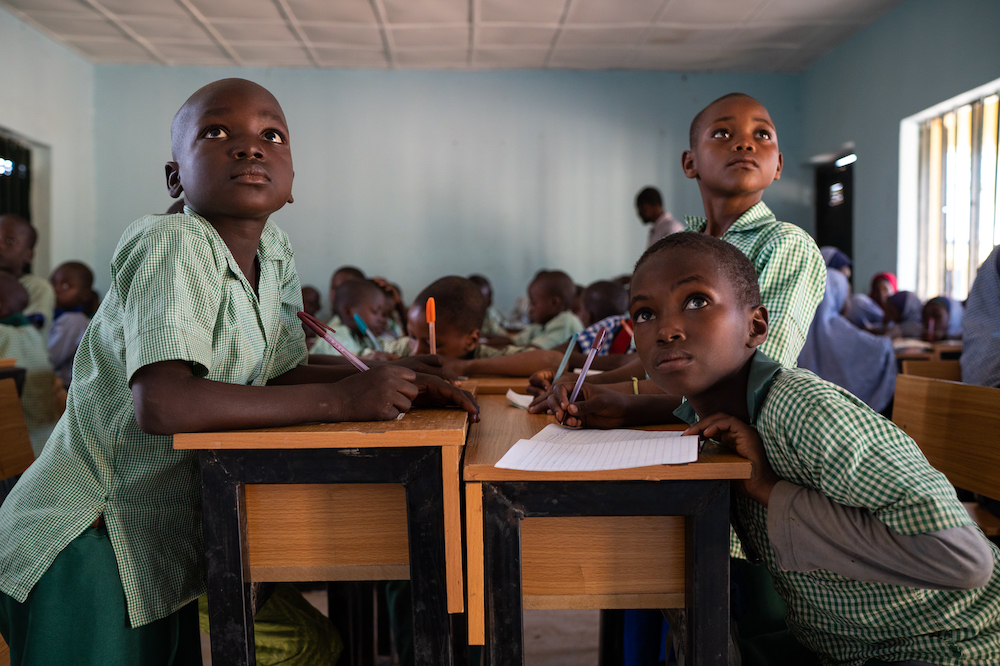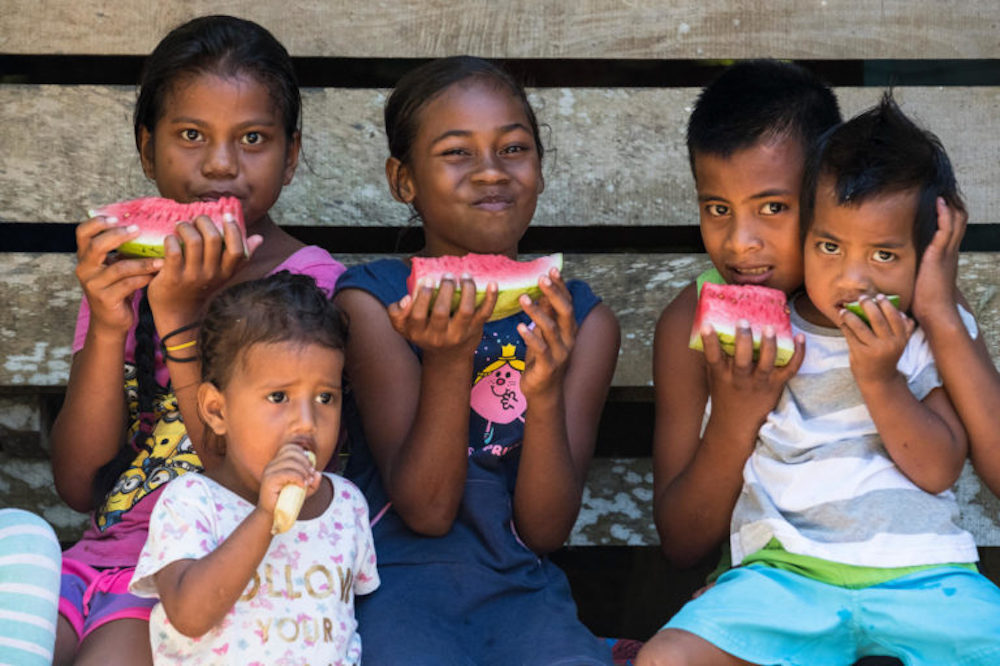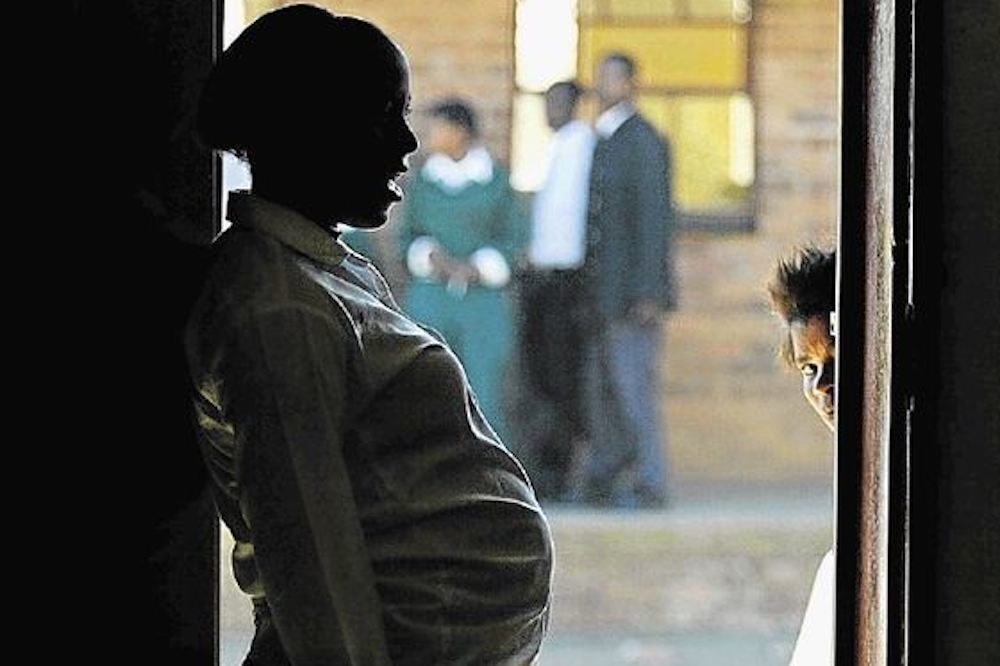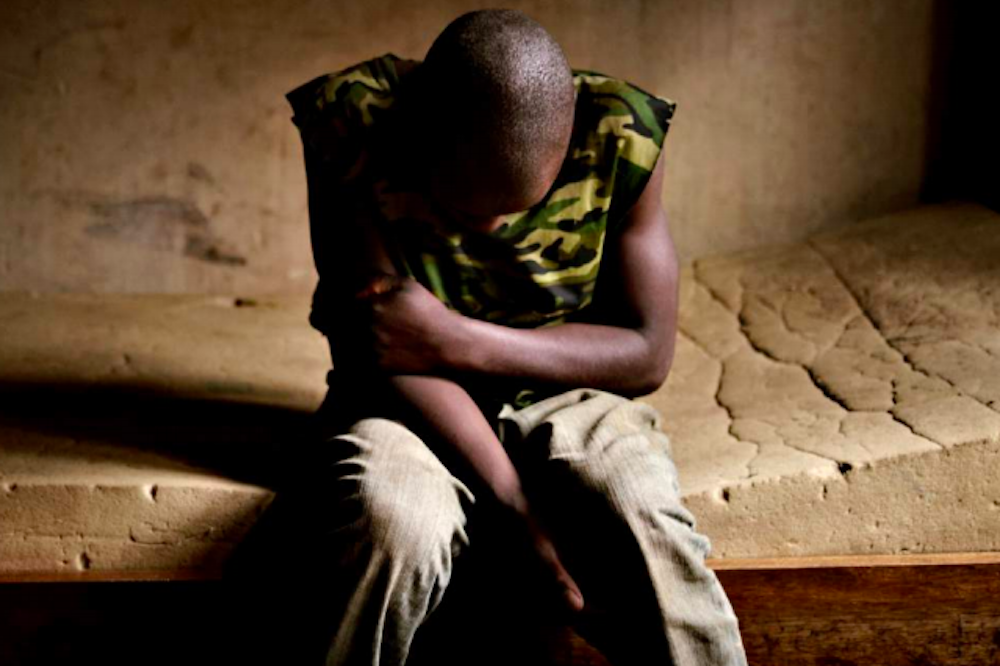
Five things you need to know this week about global education

Child soldiers, Children in conflicts, Education in emergencies
Theirworld condemns the latest mass kidnapping at a Nigerian school - and how students are walking miles on mountain paths to access their online lessons.
Theirworld condemns abductions of schoolchildren
Theirworld has denounced the latest school kidnapping in Nigeria, in which three children were killed and more than 90 students taken. The attack was the third mass abduction in three weeks in the north of the country.
“We are deeply alarmed by reports of the abduction of schoolchildren in the state of Kebbi and call for their immediate release,” said a joint statement by Theirworld President Justin van Fleet and Education Cannot Wait Director Yasmine Sherif.
“Such heinous violence has been increasing in the country, with around 1,000 girls and boys reportedly abducted by armed elements in recent months, according to the United Nations. Every child – especially girls – deserves the right to go to a safe school free of fear of violence or kidnapping.”
Schoolchildren & schools are NOT targets & must NEVER be attacked. @Theirworld & @EduCannotWait strongly condemn the abduction of schoolchildren in #Nigeria & call for their immediate release.
Read full joint statement: https://t.co/Vq3UmuXNvu@YasmineSherif1 @justinvanfleet pic.twitter.com/LcRrECM8mu
— Education Cannot Wait (@EduCannotWait) June 21, 2021
Bandits seeking ransom have kidnapped hundreds Nigerian students from their schools since December. Some have been freed but many remain missing.
In the Kebbi incident, gunmen attacked a federal government college in the remote town of Birnin Yauri. The army said it had rescued three teachers and eight students.
Nigeria is one of 109 countries to endorse the Safe Schools Declaration – a commitment to prevent attacks on education and the military use of schools. Van Fleet and Sherif said: “As Nigeria prepares to host the Fourth International Conference on the Safe Schools in October this year, it must lead the way on how to turn the Declaration’s commitments into action to ensure that all students and educators can learn and teach in safety.”
UN helps schools to improve children's health

Evidence shows a link between nutrition programmes in schools and better outcomes for children’s learning (UN Photo)
The United Nations has launched an initiative to help schools around the world improve the health and wellbeing of children and adolescents.
The Global Standards for Health-promoting Schools aims to ensure all countries and schools promote life skills, cognitive and emotional skills, good nutrition and healthy lifestyles.
The initiative by UNESCO and the World Health Organization is based on a set of standards that will be piloted at schools in Botswana, Egypt, Ethiopia, Kenya and Paraguay.
“Schools play a vital role in the wellbeing of students, families and their communities, and the link between education and health has never been more evident,” said Dr Tedros Adhanom Ghebreyesus, WHO’s Director-General. The pandemic caused 365 million primary school students to miss school meals and significantly increased rates of stress and anxiety.
Mountain students trek to their lessons
Students living in remote Himalayan villages have told how they are forced to walk miles to get access to their online school lessons.
More than 150 villages in the Indian-administered region of Kashmir have poor or no internet access. Rouf Rashid, 18, told the BBC he walks for an hour on mountain paths to get a signal to attend his class. He said: “In the village we can’t even make a phone call.”
Ruhi Nisa, who walks two miles to get a signal, said: “It can take me four to five days to download a full lecture and only then can I study it.”
Many students haven’t been at school for more than two years. In 2019, India revoked the region’s special status and closed all schools during a curfew. As they began to reopen, the pandemic struck and shut down classes again.
Education hope for pregnant girls

Many girls are told to stay away from school while they are pregnant
Students who drop out of secondary school in Tanzania will be offered the chance to resume studies in alternative colleges. The government announced the move as part of a shift away from the heavily-criticised policy which saw pregnant girls expelled from school.
About 5,500 pregnant Tanzanian girls drop out of school every year, according to the World Bank. Expulsions increased under President John Magufuli, who died in March.
“We are offering an alternative path to education to all children who missed their education for any reason, including those girls who got pregnant while in school, through our Folk Development Colleges,” education ministry official Leonard Akwilapo told Reuters news agency.
He said the 54 colleges would be ready by January to provide secondary education to former school dropouts. Tanzania is implementing a $500 million World Bank project to broaden access to education.
Villagers massacred by child soldiers

Child soldiers are classed as young people under 18 who are used in the military, whether as fighters or in some other role (Child Soldiers International)
The massacre of more than 130 people at a village in Burkina Faso was carried out mostly by child soldiers between the ages of 12 and 14, the United Nations and the government has said.
“We strongly condemn the recruitment of children and adolescents by non-state armed groups. This is a grave violation of their fundamental rights,” said Sandra Lattouf, UNICEF’s representative in the country.
Conflict in the West African country has closed more than 2,200 schools – about one in 10 – affecting over 300,000 children.
A new UN report this week said more than 8,500 children were used as soldiers last year in various conflicts across the world and nearly 2,700 others were killed. It listed more than 850 attacks on schools and hospitals.
More news

